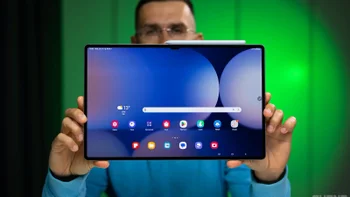Google Pixel joins iPhone 16 in Indonesia sales ban

The fourth most populous country in the world – that's just another way of saying Indonesia – has announced a ban on sales of Google’s Pixel smartphones.
The island country cites rules that require a certain level of locally manufactured components in phones sold domestically. They are not present to a high enough degree in Pixel phones, so there you have it.
This decision follows a similar ban placed on Apple’s iPhone 16 just days prior, both over the same requirement that at least 40% of a device’s components be produced locally.
The spokesperson for Indonesia's industry ministry, Febri Hendri Antoni Arief, explained that these rules are designed to ensure fairness for investors in the country, Reuters reports. He emphasized that Google’s devices had not yet met the specified requirements and thus could not be sold in Indonesia. Google, in response, noted that its Pixel phones are not officially distributed within the country.
Febri clarified that consumers may still purchase Google Pixel phones abroad, provided they pay the appropriate taxes upon return. However, he also mentioned that authorities may consider deactivating phones that are imported unofficially.
However, tourists visiting Indonesia can bring their iPhone 16 into the country, according to recent statements from Indonesia’s Industry Ministry. Although the sale of the device within Indonesia is currently prohibited, travelers may carry up to two iPhone 16 units. Additionally, Indonesian citizens can bring iPhone 16 devices purchased abroad into the country, as long as they pay the required taxes and refrain from selling them domestically.
This clarification provides reassurance to Apple users in Indonesia, especially since initial reports suggested that foreign-purchased iPhones might be confiscated upon entry. However, until Apple fulfills its local investment commitments, the iPhone 16 remains unavailable for purchase in Indonesia, leaving most residents without access to the latest model.
The enforcement of these rules reflects Indonesia’s commitment to boosting local manufacturing and encouraging tech companies to source components from domestic suppliers or form partnerships with local manufacturers.
This recent ban aligns with Indonesia’s larger focus on fostering tech-related investments to serve its large, tech-savvy population. However, the decision has drawn criticism from local experts.
In Indonesia, Chinese firm Oppo and South Korean Samsung lead the smartphone market, with Google and Apple occupying smaller shares. As the Southeast Asian nation continues to emphasize local sourcing for international tech companies, it remains to be seen how the bans will affect consumer access and international business relations.
The island country cites rules that require a certain level of locally manufactured components in phones sold domestically. They are not present to a high enough degree in Pixel phones, so there you have it.
The spokesperson for Indonesia's industry ministry, Febri Hendri Antoni Arief, explained that these rules are designed to ensure fairness for investors in the country, Reuters reports. He emphasized that Google’s devices had not yet met the specified requirements and thus could not be sold in Indonesia. Google, in response, noted that its Pixel phones are not officially distributed within the country.
However, tourists visiting Indonesia can bring their iPhone 16 into the country, according to recent statements from Indonesia’s Industry Ministry. Although the sale of the device within Indonesia is currently prohibited, travelers may carry up to two iPhone 16 units. Additionally, Indonesian citizens can bring iPhone 16 devices purchased abroad into the country, as long as they pay the required taxes and refrain from selling them domestically.
The enforcement of these rules reflects Indonesia’s commitment to boosting local manufacturing and encouraging tech companies to source components from domestic suppliers or form partnerships with local manufacturers.
This recent ban aligns with Indonesia’s larger focus on fostering tech-related investments to serve its large, tech-savvy population. However, the decision has drawn criticism from local experts.
Bhima Yudhistira, director of the Center of Economic and Law Studies, argued that such policies could be seen as a form of "pseudo" protectionism that may discourage investors. He noted that while these measures aim to support the local industry, they may negatively impact consumer choices and create hesitancy among potential investors.
In Indonesia, Chinese firm Oppo and South Korean Samsung lead the smartphone market, with Google and Apple occupying smaller shares. As the Southeast Asian nation continues to emphasize local sourcing for international tech companies, it remains to be seen how the bans will affect consumer access and international business relations.
Follow us on Google News










Things that are NOT allowed:
To help keep our community safe and free from spam, we apply temporary limits to newly created accounts: